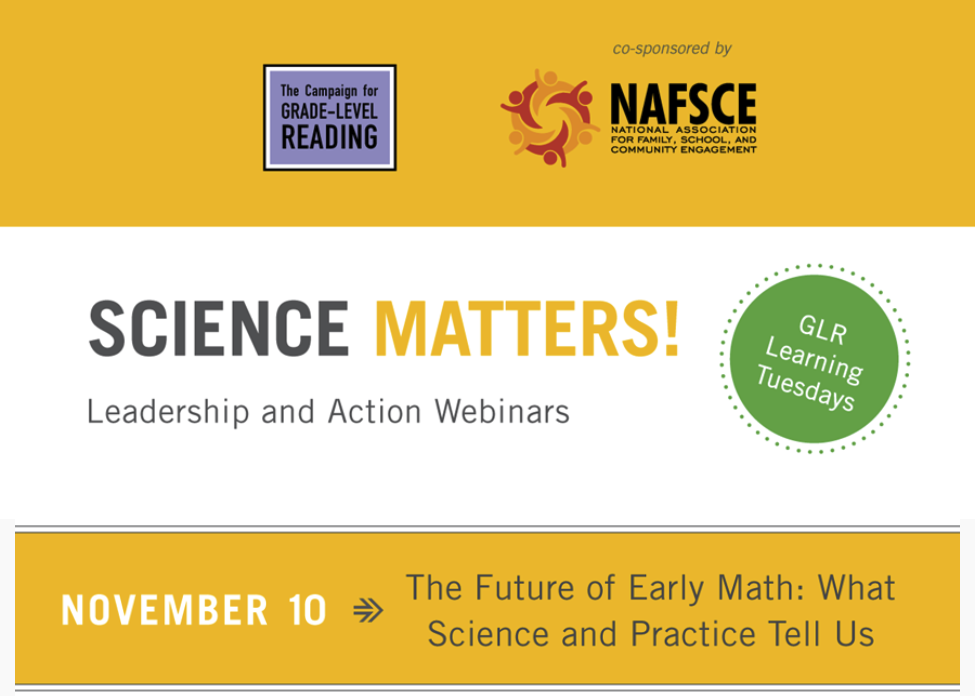The Future of Early Math: What Science and Practice Tell Us
This webinar is a joint presentation of the Campaign for Grade-Level Reading and the National Association for Family, School, and Community Engagement.
Science tells us that early math is an essential component of an early learning strategy. All of us who care about young children have opportunities every day to promote and spark their math learning through playful interactions and conversations. Simple practices can have lifelong benefits.
Moderated by Kimberly Brenneman ofthe Heising-Simons Foundation. The webinar will kick off with a discussion by Boston College’s Dr. Eric Dearing of what we know about early math from large-scale studies, and how we know it. Dr. Jennifer McCray of the Erikson Institute Early Math Collaborative will share how researchers communicate and collaborate with systems such as Head Start to forge engaging and effective early math learning environments.
Next, Dr. Margaret Caspe of NAFSCE and Dr. Gigliana Melzi of New York University will discuss the vital role of families, sharing what the research says on how family engagement supports early math and provides a bridge between family-serving practitioners and parents.
Commentator Omowale Moses of MathTalk will reflect on how scientific findings inform his work as a developer of community-based math-rich environments and engaging learning tools for families.
Finally, Vito Borrello of NAFSCE will comment on the future of early math, sharing plans for NAFSCE’s work to create a national center on family math.
Participants will leave this webinar with an understanding, grounded in science, of the essential role early math plays in an early learning strategy and with examples of early math in action, providing them with insights about how to engage parents and practitioners in practical, accessible, joyful, science-based activities to promote early math.
